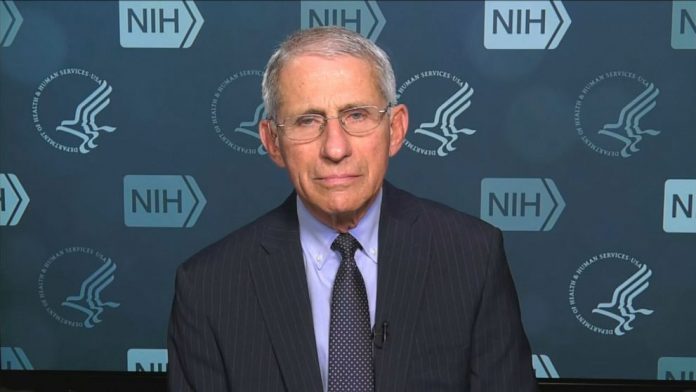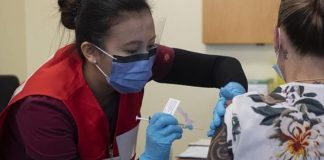The United States can expect to see more fatalities from the coronavirus pandemic, even if the nationwide social distancing guidelines are extended, according to Dr. Anthony Fauci, director of the National Institute of Allergy and Infectious Diseases.
“Even if these guidelines are extended, we will lose more people. Exactly how many more we would lose is uncertain, depending upon the efficiency of the mitigation methods,” Fauci told ABC News Chief Anchor George Stephanopoulos in an interview Monday on “Good Morning America.”
The 15-day guidelines were set to expire Monday. But President Donald Trump announced during a press conference Sunday that he had decided to extend the guidelines for another 30 days, after suggesting over the past week that he wanted to relax them reopen the country for business by Easter.
“None of us felt that 15 days was adequate,” Fauci said, adding that they had “intensive conversations” with Trump and that they ultimately “convinced him.”
“To pull back the mitigation methods before you reach the peak and turned the corner I think really would have been imprudent because that would have merely regenerated the spike to go up,” Fauci said. “If we prematurely did it, it would likely rebound and that’s one thing you do not want to happen.”
Fauci said they think “April might do it” but it’s possible the guidelines will have to be extended even further.
When asked about the clinical trials on potential therapeutics to treat COVID-19, Fauci said he hopes by late spring or early summer they’ll “get a signal in one of those drugs to see whether it works or not.”
“And if it does, we’ll widely distribute it,” he added. “And if it doesn’t, we’ll just get it off the shelf, get it off the table, because it wont be useable.”
Fauci said a vaccine will take longer.
“We’re in the phase one trial. We went into it as quickly as we possibly could, the fastest ever,” he said. ” But still the process at rocket speed takes about a year to a year and a half. So if we cycle with this outbreak and it comes back next fall and winter, we might have the early components of a vaccine ready to counter that outbreak likely next winter.”













